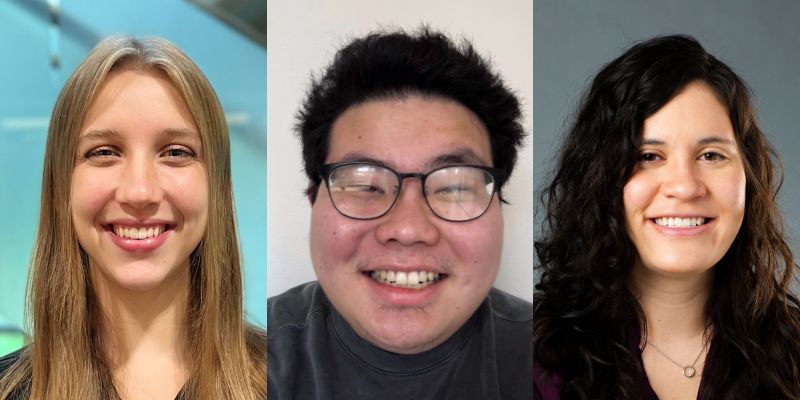Rental Partner: University of Washington Office of Public Lectures presents
Healthcare Where All Can Thrive
Advocating For Older LGBTQ Adults with Carey Candrian

Town Hall Seattle and UW Engage Science present
UW Engage 2024
Note: UW Engage events are approximately 90 minutes long.

Hear from UW students about their research on heart disease, mysterious tree gas, and mental health in an app.
Ariana Frey
Ariana makes tiny hearts, shaped like macaroni pasta, to learn more about what causes heart disease and how we can create better treatments.
Our hearts contain tons of blood vessels throughout themselves to provide oxygen and nutrients to our heart muscle cells. Additionally, you have a very important type of cell that lines the inside of these blood vessels, called endothelial cells. These cells act like your heart’s security officers, controlling what can and cannot pass from the blood stream to the heart muscle cells. However, sometimes these endothelial cells can become sick, preventing them from performing their protective duties. Scientists have linked this dysfunction of the endothelial cells to heart disease; yet, to fully understand this relationship and how we can use this information to create new treatments, Ariana Frey is exploring a way to study this on made-from-scratch human hearts.
Ariana Frey is a bioengineering graduate student at the University of Washington, where she is creating tiny, simplified human hearts, shaped like macaroni pasta, that include both a blood vessel and heart muscle cells. Her goal is to use these tiny hearts to further study how and when endothelial cell dysfunction leads to heart disease, and how this function can be recovered.
James Yoon
James studies the gases that certain trees mysteriously emit, and how they impact air quality—in some places, for the worse!
Certain types of trees emit large amounts of a molecule called isoprene on hot days. In the atmosphere, isoprene can eventually form smog and worsen air quality, which is contrary to the common idea that “trees clean the air”! But does this mean that planting trees will degrade air quality, or is it more complicated than that? This talk will address the plant-air quality relationship and how isoprene can impact not only pollution events, but also potentially how quickly Earth warms due to climate change.
James Yoon is an atmospheric chemist who is fascinated by how plants can affect the atmosphere and the air we breathe through the gases they emit. To study this question, he uses computer simulations and satellites to better represent these gases and the chemistry they undergo in the atmosphere. Through this work, he hopes to better describe how biology and air quality interact.
Melissa Gasser
Melissa uses the power of smartphones for good – good mental health that is. She is translating mental health treatments into apps and websites to make access easier for everyone.
Though approximately 20% of American adults have experienced a mental illness in the past year, only about half of those individuals utilized any form of mental health treatment in the same timeframe. This is particularly concerning regarding young adults who are both more likely to be experiencing a mental health challenge and less likely to receive mental health treatment than older adults. In Melissa Gasser’s research, she is working to adapt mental health treatments to smartphone apps and websites while further tailoring those treatments to young adult populations to make treatment more accessible and effective for this population.
Melissa Gasser is a clinical psychology graduate student and researcher at the University of Washington.
Presented by Town Hall Seattle and UW Engage Science.
Rental Partner: University of Washington Office of Public Lectures presents
Advocating For Older LGBTQ Adults with Carey Candrian
Rental Partner: KUOW presents
Hosted by Bill Radke
Rental Partner: Fever presents
The Best of Hans Zimmer